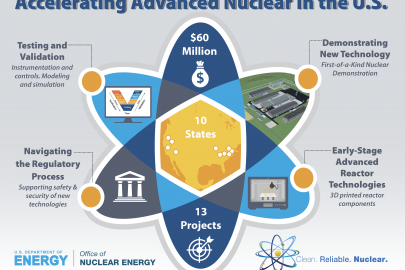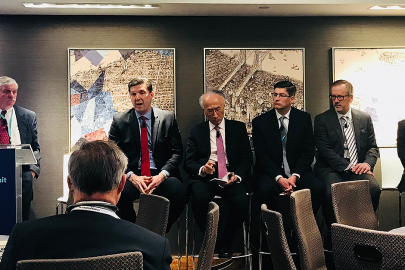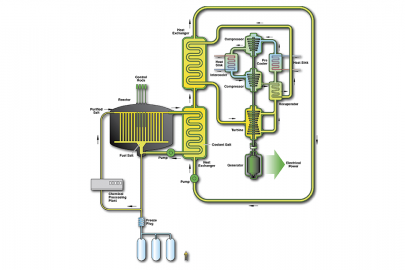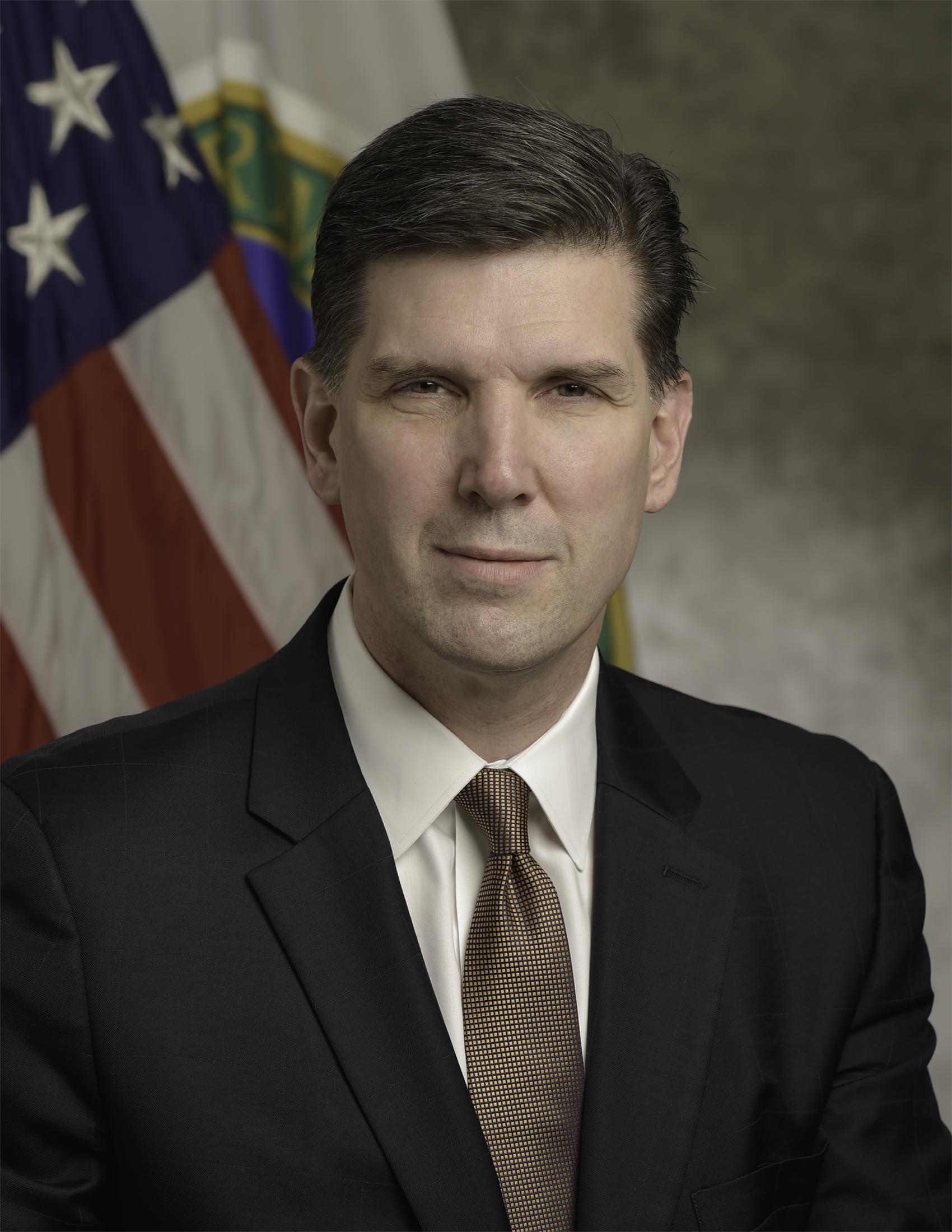Advanced reactors, additive manufacturing and advanced fuels are expected to transform the U.S. nuclear industry. Here's how.
June 5, 2018Despite what you might think, now is the perfect time to double-down on nuclear energy.
A new wave of innovation is on its way, and it’s going to completely transform the energy sector.
Nuclear plays a pivotal role in protecting our clean air, strengthening our national security and spurring the economy.
That’s why we work every day to support industry and our university partners in developing and demonstrating game-changing technologies.
These innovative and disruptive efforts will not only leap frog our nation into the future, but it will also re-establish our great nation as a global leader in nuclear energy.
Office of Nuclear Energy's Ed McGinnis gives his thoughts on the impact advanced reactors will have on U.S. nuclear industry.
New Classes of Advanced Reactors
The United States is developing cutting-edge advanced reactor designs that have unprecedented versatility, can be paired with renewable generating sources, are much less expensive, burn waste as an energy resource, and are walk-away safe.
NuScale Power’s advanced small modular reactor (SMR) is a prime example.
Its passive safety cooling system is a game-changer and essentially makes the reactor walk-away safe—without any action required by the operator to safely shut the reactor down.
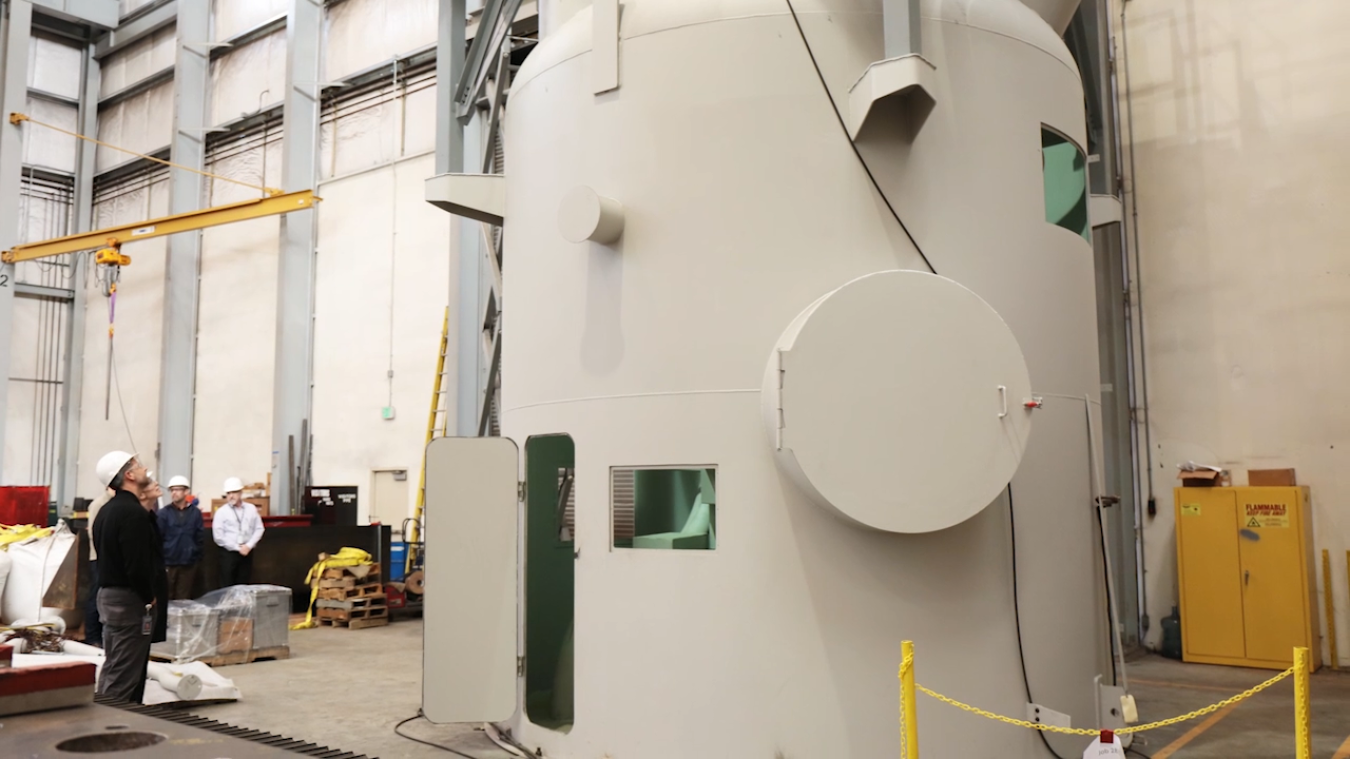
NuScale Power test facility.
The company’s design is currently under review by the Nuclear Regulatory Commission (NRC) and on target to become the nation’s first advanced commercial SMR by 2026.
It’s also one of our best chances to compete globally in this emerging market with countries like China, Russia and South Korea.
The U.S. Department of Energy (DOE) recently awarded NuScale $40 million in cost-shared financial support to help keep this project on pace and makes sure America has skin in the game in this potentially $500 billion SMR industry.
Advanced Manufacturing
Disruptive innovation doesn’t just stop with advanced reactor designs.
We’re dramatically changing the way these technologies will be built through advanced manufacturing.
DOE is supporting another project with BWX Technologies and Oak Ridge National Laboratory (ORNL) to develop different nuclear components through additive manufacturing—a process most commonly known as 3D printing.
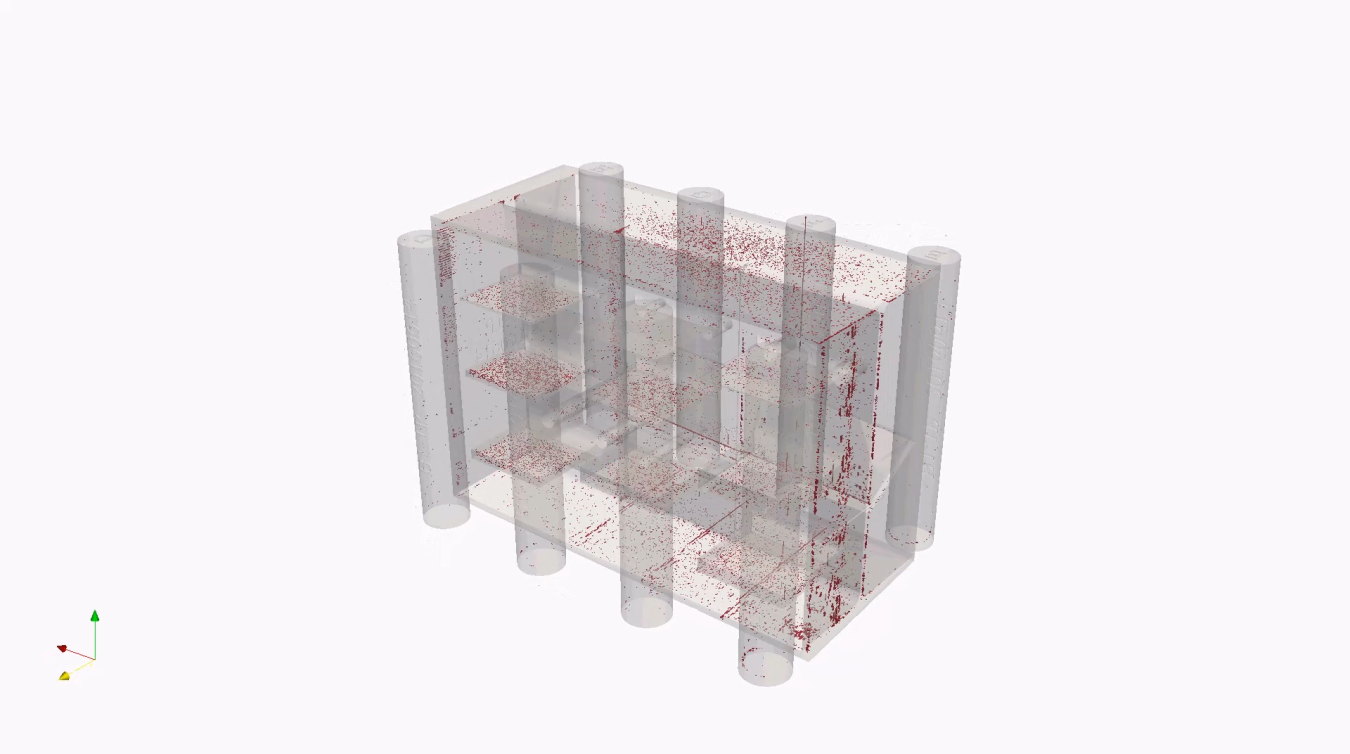
Computer design file of a nuclear component used for additive manufacturing.
Additive manufacturing allows them to create complex designs that can then be rapidly prototyped and tested. This will significantly reduce the time and money it will take for them to bring new fuels and components to market.
It also means we can produce the components here in the United States and not be reliant on overseas manufacturing facilities.
Advanced Fuels
As new advanced reactors come online, new fuels are being developed that can perform more efficiently at higher temperatures.
DOE is also supporting X-energy’s efforts to design and submit a NRC license application for a TRISO-X fuel fabrication facility.
TRISO fuels are resistant to extreme temperatures, well beyond the failure threshold of current fuels.

Pebble fuel designed by X-energy.
The facility will help ensure that a strong production line is in place to help fuel our advanced reactors.
Accident Tolerant Fuels
Finally, General Electric’s Global Nuclear Fuel (GNF), Framatome, and Westinghouse are all working with DOE to help bring new accident tolerant fuels to market within the next 10 years.
These new technologies will further enhance the safety and performance of nuclear fuels for our current fleet of reactors.
GNF is currently testing two versions of their materials in Southern Nuclear’s Hatch-1 reactor in Georgia.
They plan to deploy lead test assemblies with fuel in 2019.
Framatome and Westinghouse both have plans to test their accident-tolerant fuel designs within a year’s time.

Learn more about all of our transformative projects currently underway.
Edward McGinnis
Edward McGinnis was formerly the acting Assistant Secretary for the Office of Nuclear Energy. Prior to that role, he served as the Principal Deputy Assistant Secretary for Nuclear Energy and the Deputy Assistant Secretary for International Nuclear Energy Policy and Cooperation. As Deputy Assistant Secretary, he was responsible for the Department of Energy's international civilian nuclear energy activities, including international nuclear energy research, development and demonstration cooperation, multilateral nuclear energy cooperation, international nuclear energy policy, international nuclear safety cooperation, and advocacy for U.S. civil nuclear exports and industry. As part of these responsibilities, Mr. McGinnis served as Steering Group Chairman of the International Framework for Nuclear Energy Cooperation that consists of more than 65 countries and 4 international organizations. He also served as the Departmental Representative in the U.S. interagency for civil nuclear energy trade and promotion. Mr. McGinnis has also served as a Vice Chairman and Principal U.S. Representative to the Generation IV International Forum and was responsible for U.S. domestic nuclear fuel assurance matters, including technical oversight activities regarding the United States Enrichment Corporation, uranium inventory management matters, as well as U.S. nuclear energy security matters.
Prior to working in the Office of Nuclear Energy, Mr. McGinnis led a number of other high-priority U.S. government initiatives at DOE, including having served as the senior director for the Office of Global Radiological Threat Reduction where he managed global operations involving the search, recovery, security, and disposal of high-risk radiological and nuclear sources in cooperation with over 40 countries, including within the United States. These activities included recovery of high-risk radiological sources from Iraq, establishment of a Global Radiological Regional Partnership Program, and the first-of-its-kind repatriation of high-risk U.S.-origin plutonium-239 sources. Mr. McGinnis also established and served as the director of the Nuclear and Radiological Threat Reduction Task Force, which was created to carry out a number of key Secretarial national security initiatives, including the development of a global nuclear materials removal and research reactor security study that included the identification of nuclear research reactors throughout the world by level of vulnerability and an action plan to effectively mitigate such vulnerabilities.
Mr. McGinnis also served as senior advisor and special assistant to four Assistant Secretaries and Deputy Administrators for nonproliferation and national security at the Department of Energy where he served as a senior advisor for all aspects of the Department's nonproliferation missions, including nonproliferation research and development, materials protection, control and accounting, and warhead security.
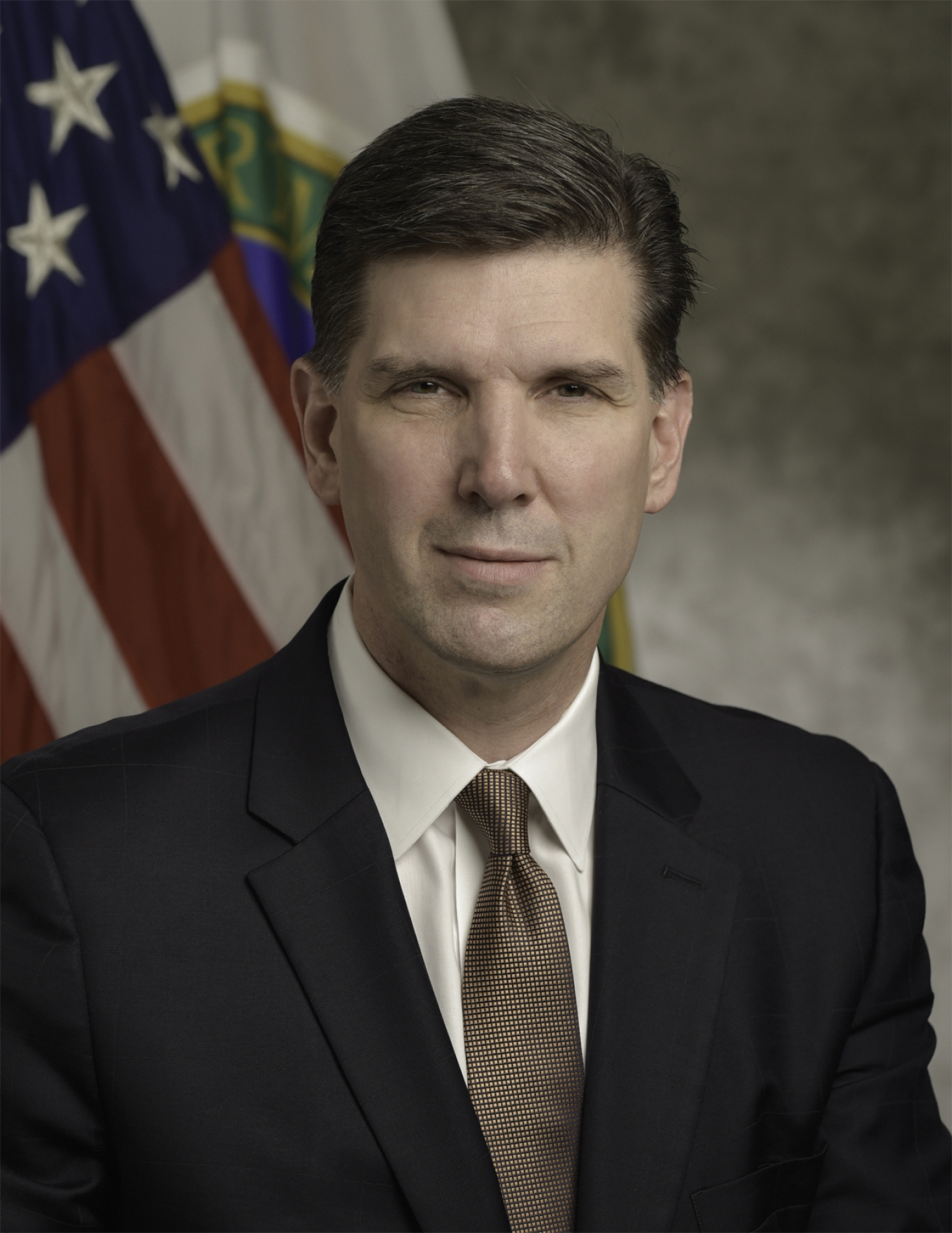
Edward McGinnis is the acting Assistant Secretary for the Office of Nuclear Energy. The Office is responsible for conducting research on current and future nuclear energy systems, maintaining the government’s nuclear energy research infrastructure, establishing a path forward for the nation’s spent nuclear fuel and high-level nuclear waste management program, and a host of other national priorities.
Prior to this role, he served as the former Principal Deputy Assistant Secretary for Nuclear Energy and the Deputy Assistant Secretary for International Nuclear Energy Policy and Cooperation. As Deputy Assistant Secretary, he was responsible for the Department of Energy's international civilian nuclear energy activities, including international nuclear energy research, development and demonstration cooperation, multilateral nuclear energy cooperation, international nuclear energy policy, international nuclear safety cooperation, and advocacy for U.S. civil nuclear exports and industry. As part of these responsibilities, Mr. McGinnis served as Steering Group Chairman of the International Framework for Nuclear Energy Cooperation that consists of more than 65 countries and four international organizations. He also served as the Departmental Representative in the U.S. interagency for civil nuclear energy trade and promotion. Mr. McGinnis has also served as a Vice Chairman and Principal U.S. Representative to the Generation IV International Forum and was responsible for U.S. domestic nuclear fuel assurance matters, including technical oversight activities regarding the United States Enrichment Corporation, uranium inventory management matters, as well as U.S. nuclear energy security matters.
Prior to working in the Office of Nuclear Energy, Mr. McGinnis led a number of other high-priority U.S. government initiatives at DOE, including having served as the senior director for the Office of Global Radiological Threat Reduction where he managed global operations involving the search, recovery, security and disposal of high-risk radiological and nuclear sources in cooperation with over 40 countries, including within the U.S. These activities included recovery of high-risk radiological sources from Iraq, establishment of a Global Radiological Regional Partnership Program, and the first-of-its-kind repatriation of high-risk U.S.-origin plutonium-239 sources. Mr. McGinnis also established and served as the director of the Nuclear and Radiological Threat Reduction Task Force, which was created to carry out a number of key Secretarial national security initiatives, including the development of a global nuclear materials removal and research reactor security study that included the identification of nuclear research reactors throughout the world by level of vulnerability and an action plan to effectively mitigate such vulnerabilities.
Mr. McGinnis also served as senior advisor and special assistant to four Assistant Secretaries and Deputy Administrators for nonproliferation and national security at the Department of Energy where he served as a senior advisor for all aspects of the Department's nonproliferation missions, including nonproliferation research and development, materials protection, control and accounting, and warhead security.
Mr. McGinnis holds a master's degree from The American University's School of International Service in Washington, D.C., and is a graduate of the Kennedy School's Senior Executive Fellows Program as well as the Program for Senior Executives in National and International Security at Harvard University.


